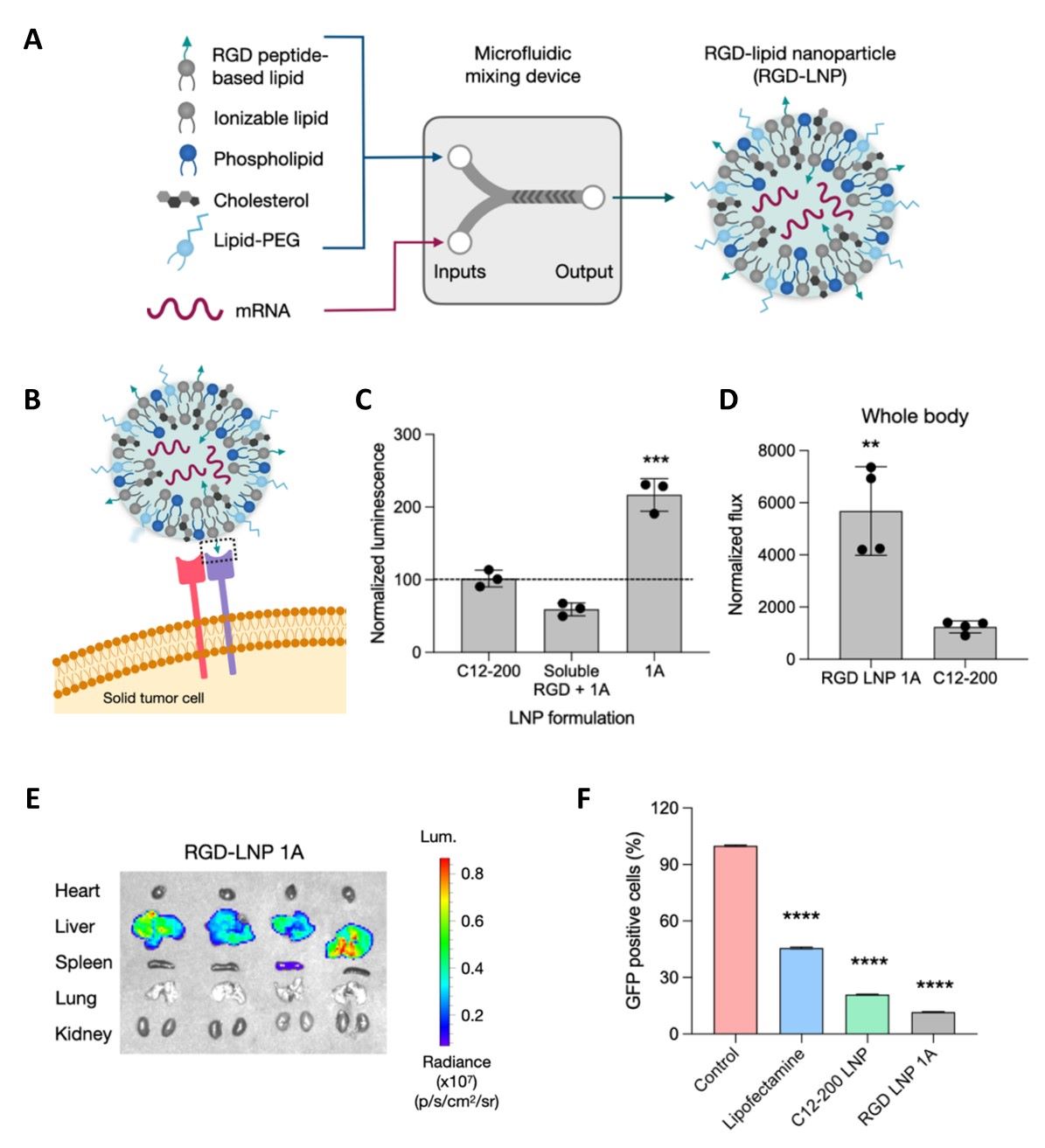A combinatorial library of RGD peptide (arginine-glycine-aspartic acid)-based lipids designed to formulate lipid nanoparticles for targeted mRNA delivery to the liver and the spleen.
Problem:
Lipid Nanoparticles (LNPs) are becoming an established choice of vehicle to deliver mRNA-based therapeutics, including vaccines, protein replacement therapies, and gene editing therapies. An outstanding challenge remains to deliver the LNP and its mRNA cargo in a site-specific manner. Non-targeted delivery can compromise transfection and genome editing efficiency and result in off-target toxicity.
Solution:
Mitchell et al., developed a library of RGD-based LNPs whereby the RGD motif serves as a targeting ligand to direct the LNP to cells with cell-surface integrins, opening the potential for cancer cell targeting. The inventors have identified a lead candidate that demonstrates an improved safety profile and transfection efficiency compared to a non-targeted LNP.
Technology:
The technology comprises a library of novel RGD-based lipids and a method of synthesizing RGD-based LNPs. The assembly process involves addition of the RGD lipid to the conventional four lipid components and subsequent microfluidic mixing with the mRNA cargo. In vitro evaluation of a lead 1A RGD LNP showed significantly improved cell viability, mRNA delivery, and gene editing efficiency compared to a non-targeted LNP. The lead RGD LNP also resulted in greater whole-body expression in vivo in mice, with selectivity toward the liver and the spleen.
Advantages:
- Efficient mRNA encapsulation (close to 90%)
- Improved transfection and gene editing efficiencies compared to a non-targeted LNP
- Up to 90% gene editing efficiency demonstrated in vitro
- Targeted delivery to the liver and the spleen
- Improved cell viability
- Potential application in cancer cell targeting

(A) Schematic of the assembly process for generating RGD-based LNPs loaded with an mRNA cargo. (B) RGD-based LNPs target cells with cell-surface integrin, allowing for potential tumor targeting. (C-D) The lead 1A RGD LNP demonstrates: (C) Improved transfection efficiency in vitro; and, (D) Increased whole body expression in mice in vivo compared to a non-targeted LNP control. (E) Delivery of 1A RGD LNP predominates in the mouse liver and spleen. (F) Toward gene editing applications, the RGD LNP shows effective co-delivery of Cas9 mRNA and single guide RNA, achieving up to 90% knockout efficiency in vitro and outperforming a non-targeted LNP control.
Stage of Development:
- Target Identified
- Preclinical Discovery
Intellectual Property:
- US Provisional Application Filed
Case ID:
22-10072-tpNCS
Web Published:
6/1/2023
Patent Information:
| App Type |
Country |
Serial No. |
Patent No. |
File Date |
Issued Date |
Expire Date |